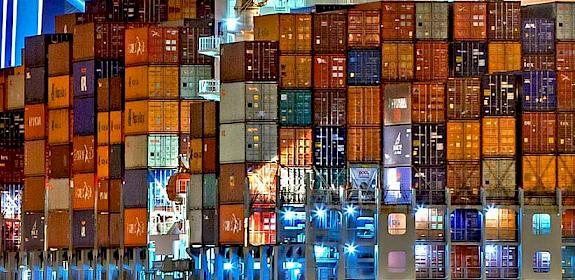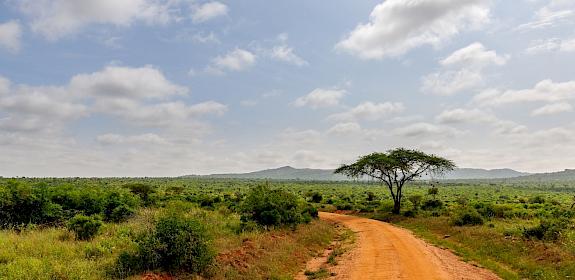Fighting wildlife crime through enhanced law enforcement collaboration in Central Africa
Yaoundé, Cameroon, 8th July 2014—Law enforcement officers, officials of ministries in charge of wildlife issues and magistrates from six COMIFAC (Central African Forest Commission) countries: Cameroon, Chad, Gabon, Central African Republic, Republic of Congo and Democratic Republic of Congo met last month with representatives from organizations involved in tackling wildlife crime to improve their co-ordination in fighting criminal activity in the Central Africa region.

The training workshop aimed to bolster participants’ ability to recognize and gather the kind of information needed for wildlife crime risk assessment and to provide guidance on the methods available to do so.
COMIFAC representatives present reaffirmed their will to strengthen implementation of PAPECALF, the regional law enforcement network aimed at combating poaching. “By facilitating information exchange between the numerous services and administrations within and between countries, this workshop is strengthening the co-operation and collaboration needed to tackle the trans-boundary wildlife illegal trade,” said COMIFAC’s Chouaibou Nchoutpouen.
During the meeting, Stéphane Ringuet from TRAFFIC introduced an overview of the Convention on International Trade in Endangered Species of Wild Fauna and Flora (CITES) and tools available to support wildlife law enforcement officers to control international trade in endangered species.
All Central African countries are members of CITES and are required to take appropriate measures to enforce the provisions of the Convention and to prevent trade violations. The Convention is also central to the aims of COMIFAC’s “Plan de Convergence”.
“Enforcement agencies should be aware of the many training materials already available to help ensure strict compliance and control of trade in CITES-listed species and help minimize the risk of illegal traffic,” said Ringuet.
“Wildlife criminality in Central Africa is of particular concern because of the low risk and high profits linked to these illegal activities, with current sanctions not reflecting the seriousness of the crime and therefore not acting as an adequate deterrent,” added Sone Nkoke, Wildlife TRAPS project officer at TRAFFIC.
“More than ever, strengthening collaboration between law enforcement services at national and regional level is crucial and effective implementation of existing rules and procedures is fundamental,” said Alain Ononino, Law Enforcement Coordinator at the WWF Central Africa Regional Programme.
Meanwhile the criminal activity has been linked to national security and political stability in the region, an issue of particular concern to ECCAS (the Economic Community of Central African States).
“ECCAS has a specific political role regarding securing peace and security in Central Africa,” said Jean-Baptiste Mamang Kanga of ECCAS. “ECCAS also pays particular attention to anti-poaching and more globally on wildlife criminality that is a source of trafficking, destabilization and loss of the heritage value of the forests and savannahs of the sub-region.”
Steve Thurlow from UNODC (UN Office on Drugs and Crime) introduced the ICCWC Wildlife and Forest Crime Analytical Toolkit and underlined how the Convention against Transnational Organized Crime—also known as the Palermo Convention—is the main instrument in the fight against transnational organized crime.
“UNODC’s Global Programme for Combating Wildlife and Forest Crime (2014-2017) will support a number of areas such as building legislation to address this crime, strengthening investigative, prosecutorial and judicial capacities, and combating related issues of money-laundering and corruption. Some countries already asked officially to be beneficiaries of this programme including Gabon for Central Africa,” said Thurlow.
Moreover, M. Enow of INTERPOL – Regional Bureau for Central Africa introduced his organization’s tool available to tackle wildlife criminality, including services regarding a secured police communications network, operational data and databases to support police work, operational support of police, and police training and development programmes.
“The Regional Bureau of Interpol for Central Africa, based in Yaoundé, is always open and available to collaborate with all services on wildlife crime,” said M. Enow.
This workshop was organized by COMIFAC in collaboration with WWF and TRAFFIC. Workshop participants included representatives from Cameroon, Gabon, Republic of Congo, Central African Republic (CAR), Democratic Republic of Congo (DRC) and Chad. The main organizations present either as participants or trainers included the Ministries in charge of wildlife issues, COMIFAC, ECCAS, UNODC, INTERPOL – Regional Bureau for Central Africa, enforcement agencies (Police, Gendarmerie, Customs), magistrates, WWF and TRAFFIC.
The German Ministry for Economic Cooperation and Development (BMZ) provided financial support for the meeting.
Material provided to the participants included summaries of two TRAFFIC reports, prepared under contract to the CITES Secretariat and made possible through funding received from the European Union: Mise en Oeuvre de la CITES par les Pays de l’Espace COMIFAC: Evaluation Préliminaire des Besoins. [Implementation of CITES by the countries of the COMIFAC Area – A Preliminary Needs Assessment (in French)]
Développement d’un Système de Gestion des Stocks d’Ivoire au Gabon: Propositions de Standards Minimums. [Development of an Ivory Stockpile Management System in Gabon: Proposal for Minimum Standards (in French)]




